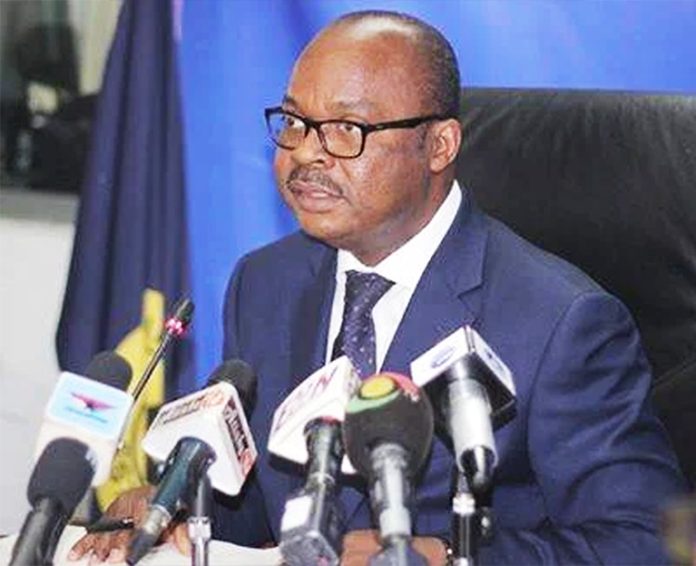The Monetary Policy Committee (MPC) of the Bank of Ghana (BoG) has decided to maintain the Monetary Policy Rate (MPR) at 27.0 percent in response to ongoing inflationary pressures and the sluggish pace of disinflation.
This decision was announced at a press statement on Friday, November 29, 2024 following its November 2024 meeting.
According to the statement, headline inflation, which stood at 20.4 percent in August, increased to 21.5 percent in September and further to 22.1 percent in October.
The surge was primarily driven by rising food prices and residual exchange rate pass-through effects following earlier currency depreciation.
“The price increases in food items have been steep this year and together with a fast-paced depreciating currency earlier on, these factors have altered the inflation trajectory and stalled the disinflation process,” BoG noted in its statement.
While inflation has eased significantly from the 35.1 percent recorded in October 2023, the persistence of price pressures compelled the MPC to take a cautious stance.
Core inflation, which excludes volatile items like energy and utilities, has also moderated over the year, reflecting a more stable underlying trend.
Economic Activity Strengthens Amid Challenges
Despite inflationary pressures, the country’s economy continues to show resilience. The Composite Index of Economic Activity (CIEA), a key measure of real-sector performance, recorded a 2.2 percent annual growth as of September 2024, a marked recovery from the 0.4 percent contraction in the same period in 2023, per the statement.
This growth, it explained, was supported by increased port activity, higher household and business consumption, a boost in construction projects and improved private-sector credit availability. Additionally, business confidence improved significantly, with firms expressing optimism about future industry prospects.
The Purchasing Managers’ Index (PMI) which tracks business conditions rose to 50.6 in October, up from 49.1 in September, indicating expansion in the manufacturing sector.
Banking Sector
The MPC highlighted the soundness of Ghana’s banking sector, despite lingering challenges. Non-performing loans (NPLs) remain elevated at 22.7 percent, compared to 18.3 percent in October 2023. However, banks have built substantial capital buffers and total assets have grown by 42.4 percent year-on-year to GH¢367.2 billion as of October 2024.
“Commercial banks have accumulated enough capital buffers to withstand the effects of external debt restructuring,” the statement noted, adding that the sector’s stability is expected to support economic growth moving forward.
Lending rates also showed marginal declines, with average bank rates falling to 30.45 percent in October 2024 from 32.69 percent in the corresponding period last year.
External Sector Gains
The external sector performance has been robust, buoyed by a higher current account surplus, strong remittance inflows, and increased gold and crude oil exports.
The current account surplus surged to $2.2 billion in the first nine months of 2024, up from $912 million in the same period in 2023.
The improved external position contributed to a build-up of foreign reserves, which stood at $7.92 billion in November, equivalent to 3.5 months of import cover.
This stability has helped strengthen the Ghanaian cedi, which recorded appreciable gains of 6 to 9 percent against major currencies between October and November.
The MPC noted that while inflation is expected to gradually decline, the horizon for achieving the target range of 6-10 percent has shifted to the fourth quarter of 2025, reflecting lingering price pressures from food, fuel, and utility costs.
“The strengthening of the cedi will augur well for future price developments,” the Committee stated, emphasising the need for continued vigilance in managing inflation risks and ensuring macroeconomic stability.
The Bank of Ghana also underscored the importance of monitoring global developments, including geopolitical tensions, trade protectionism, and energy price volatility, which could influence domestic conditions.
With steady progress in economic growth, improved investor confidence, and a resilient financial sector, the MPC expressed cautious optimism about the economic prospects.
The next policy meeting is scheduled for January 2025, where the Committee will reassess its stance based on updated data and forecasts.









